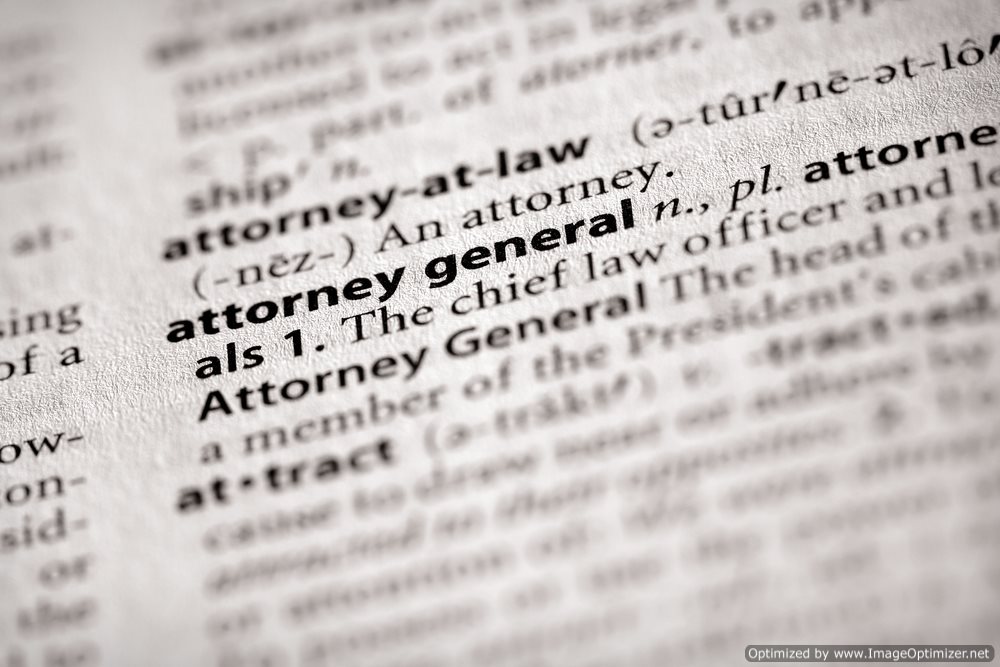A Quick Definition of an Attorney General




 Who is Andrew Cuomo?
Who is Andrew Cuomo?
Born on December 6, 1957 Andrew Cuomo is the current Governor of the state of New York. Cuomo assumed office on January 1, 2011 following his post as the state’s 64th Attorney General. In addition to serving as the New York State Attorney General, Cuomo was the 11th United States Secretary of Housing and Urban Development.
What did Andrew Cuomo do as New York State Attorney General?
Andrew Cuomo, while serving as the New York State Attorney General, accomplished a number of tasks that ultimately helped citizens progress through the decade. For instance, in July of 2007 Andrew Cuomo and the New York State office attorney general admonished the Spitzer administration for ordering the State Police to house special records of then-Senate majority leader Joseph Bruno’s location when he traveled with police escorts in New York City.
Later in the same year, Andrew Cuomo and his office were active in a high profile police investigation regarding the lending practices and anti-competitive relationships formed between student lenders and universities. In a more specific sense, Andrew Cuomo was attempting to crack-down on how universities steered students to “preferred lending institutions”, which ultimately resulted in those borrowers taking on loans with exorbitant rates.
 What is the Office of the Attorney General?
What is the Office of the Attorney General?
In the United States, the attorney general’s office is home to the chief legal advisor to both the Federal Government and the individual state governments. The office of the attorney general in the United States is established and maintained in a local and federal setting each state possesses its own office of attorney general and the government utilizes the position to act as the chief legal representative for the United States.
Although the responsibilities are similar, the office of attorney general in each individual state will uphold and enforce local laws to protect and serve the people of the particular jurisdiction. This role is broadened in regards to the federal Attorney General, who operates within the President’s cabinet and the United States Department of Justice, and will serve and act as the chief legal cabinet for all matters dealing with the federal government.
In addition to acting as the primary legal advisor to the state, the attorneys general office may also hold executive authority and responsibilities in regards to law enforcement, as well as the general responsibility of initiating public prosecutions.
In general, the primary responsibility of both the federal and local attorney’s general office is to promote and ensure that every citizen receives his or her civic rights. The attorney general office will enforce laws and administer various government programs to guarantee that all individuals, within the appropriate jurisdiction, are safeguarded from tyranny and free to live in peace.
What is TX Attorney General Child Support?
In the United States, local attorney general officers will act as the primary enforcer and administrator for the jurisdiction’s child support laws. For instance, in the state of Texas, TX Attorney general Child support programs will effectively support, enforce and administrate all collection laws within the state.
Furthermore, if questions over paternity arise, you may need to have the TX attorney general child support department aid in establishing paternity. The TX Attorney General Child Support department handles all requests to obtain a court order to establish paternity or to initiate enforcement of an existing order. When these hurdles are cleared, the attorney general child support office will help with out-of-state collections or will set-up direct deposit accounts to forward any payments it receives.
 What is the Attorneys General Office?
What is the Attorneys General Office?
In the majority of common law jurisdictions in the United States, the attorneys general office is home to the chief legal advisor to the government (each state in the country has a local attorney general). In addition to acting as the primary legal advisor to the state, the attorneys general office may also hold executive authority and responsibilities in regards to law enforcement, as well as the general responsibility of initiating public prosecutions.
As a generalized term, the attorneys general office may refer to any legal professional who maintains a broad power of attorney to represent a principal in all legal matters. In the common law tradition; however, any individual who represents the state, especially in criminal prosecutions, is regarded as such an attorney.
The United States Attorneys General Office is typically distinguished from the government’s Solicitor General, which is a high Justice Department position that holds the responsibility of representing the United States’ government before the Supreme Court. That being said, for cases of exceptional importance, the Attorneys General Office may choose to represent the government to the Supreme Court.
As stated before, each state within the United States maintains an attorneys general office. Similar to the Federal Attorneys General Office (located in the nation’s capital of Washington D.C.), all local attorney general offices are responsible for representing the government and prosecuting criminal cases on behalf of the state.

Introduction
Child support is a necessary component in providing adequate financial support for children. It is the legal obligation for parents to provide the appropriate level of financial support for their children, whether they are married, divorced, or separated. The amount of child support to be paid is determined by various factors, such as income, number of children, custody arrangements, and other expenses.
Child Support Interactive
Many states have developed online tools and resources to help parents calculate child support payments, modify existing agreements, and enforce existing court orders. One such resource is the Child Support Interactive (CSI). The CSI is an online platform developed by the federal government to help parents navigate the complex world of child support.
The Child Support Interactive system provides a variety of services, including:
• Child support guidelines
• Online calculator for estimating child support payments
• Modification of existing child support orders
• Enforcement of child support orders
• Non-payment penalties
• Dispute resolution services
Child Support Guidelines
Each state has its own child support guidelines that are used to calculate the amount of child support to be paid. The guidelines take into account various factors, such as the income of both parents, the number of children, daycare costs, health insurance premiums, and other expenses. The child support guidelines vary from state to state, but generally follow a similar formula.
The Child Support Guidelines Worksheet is an online tool that helps parents determine the amount of child support they may be required to pay. The worksheet prompts parents to enter various financial information, such as income, tax status, and any childcare costs. The worksheet then calculates the estimated amount of child support that should be paid based on the state’s guidelines.
Online Calculator
The online calculator is another useful tool provided by the CSI system. The calculator is an easy-to-use tool that helps parents estimate the amount of child support payments they may be required to pay or receive based on their financial information. To use the calculator, parents simply enter their financial information, including income, tax status, and any childcare costs, and the calculator estimates the amount of child support that should be paid or received for each child.
Modification
If a parent’s financial situation changes, it may be necessary to modify an existing child support agreement. The Child Support Interactive website provides resources to help parents understand the modification process and how to file a modification request.
To request a modification, parents must provide evidence of the changes in their financial circumstances, such as a job loss or change in income. Modification of child support agreements can be done through the courts or through state child support enforcement agencies.
Enforcement
If a parent fails to pay child support, the Child Support Enforcement Agency (CSEA) may step in to enforce the court order. The CSEA has various enforcement options available, including wage garnishment, seizure of tax refunds, and suspension of driver’s licenses or other professional licenses.
Nonpayment
When a parent fails to pay child support, it can have a significant impact on the custodial parent’s ability to provide for the child. Federally mandated penalties apply to parents who fall behind on child support payments. These penalties can include wage garnishment, seizure of tax refunds, and suspension of driver’s licenses or other professional licenses.
In some cases, parents may face criminal charges for non-payment of child support. If a parent is convicted of non-payment of child support, they face fines and even jail time.
Custodial Parent
The custodial parent is the parent who has primary physical custody of the child or children. The custodial parent is responsible for providing for the child’s day-to-day needs, such as food, clothing, shelter, and medical care.
Non-Custodial Parent
The non-custodial parent is the parent who does not have primary physical custody of the child or children. The non-custodial parent is responsible for providing financial support to the child or children.
Court Order
Child support is often established through a court order. The court order outlines the amount of child support that must be paid and the terms of the agreement. If either parent wishes to change the terms of the agreement, they must file a modification request with the court.
Conclusion
Child support is an essential component in providing financial support for children. The Child Support Interactive website provides parents with valuable resources and tools to help navigate the complex world of child support. The website includes child support guidelines, an online calculator, modification resources, and enforcement options for non-payment. It is important for parents to understand their legal obligations and take the proper steps to ensure they provide the appropriate level of financial support for their children.
Child support interactive is an award winning website and publication, which offers information regarding child support and more specifically, the laws surrounding child support issues. Child support interactive offers information in a broad or national sense as it concerns child support laws and scenarios; however, the website predominantly focuses on the fluctuating child support laws in the state of Texas.
Individuals in the midst of child support litigation or those expecting to file a suit can access the site for a number of reasons including: access information regarding child support laws, apply for the services the website and the state of Texas offer, check the status of a pending child support case or payments, and to help facilitate the retrieval of child support payments from non-custodial parents.
Child support interactive is an online resource that provides a wealth of information for those individuals going through child support battles. Obviously, because of the nature of a child support case, an individual should utilize all resources possible. Those struggling with locating responsible parties and retrieving child support payments should contact their state’s attorney general office or visit child support interactive to help expedite the obtainment of child support payments.
How do I access Child Support Interactive?
Child support interactive, as stated before, is a website; however, to utilize the aforementioned services of child support interactive, you must first obtain a Customer Identification Number. Those custodial parents who work with the Office of Child Support Enforcement or the state’s attorney general office can learn more about how to use Child Support Interactive through various government publications and testimonials.
Child support interactive is often regarded as a valuable source of information and a portal to expedite the delivery of child support payments for both custodial and non-custodial parents alike. If you are going through a child support battle you should consider contacting a child support attorney; legal professionals who specialize in this field can provide valuable information that can ultimately lead to a beneficial resolution.
 What is the Office of Attorney General?
What is the Office of Attorney General?
In the majority of common law jurisdictions, the office of attorney general is home to the chief legal advisor to the state. The office of the attorney general in the United States is established and maintained in a local and federal setting; however, each state possesses its own office of attorney general, while the United States federal government utilizes the position to act as the chief legal representative for the government.
Although the responsibilities are similar, the office of attorney general in each individual state will uphold and enforce local laws to protect and serve the people of the particular jurisdiction. This role is broadened in regards to the federal office of attorney general; the chief legal representative for the country, who operates within the President’s cabinet and the United States Department of Justice, will serve and act as the chief legal cabinet for all matters dealing with the federal government.
In addition to acting as the primary legal advisor to the state, the attorneys general office may also hold executive authority and responsibilities in regards to law enforcement, as well as the general responsibility of initiating public prosecutions.
As a generalized term, the office of attorney general may refer to any legal professional who maintains a broad power of attorney to represent a principal in all legal matters. In the common law tradition; however, any individual who represents the state, especially in criminal prosecutions, is regarded as such an attorney.
The main responsibility of the Federal Office of Attorney General is to uphold and serve the best interest of the public within the United States’ jurisdiction. The United States Attorney General is responsible for enforcing civil rights, blocking or preventing unfair consumer practices and improving the lives of each citizen by proposing various policy changes, such as environmental protection laws and alterations to criminal procedures.
The Office of Attorney General is a prominent executive position within the federal government; the individual who serves on the Office of Attorney General is appointed by the President and subsequently confirmed by the Senate to serve as the chief legal advisor for the federal government.
The Office of Attorney General maintains the authority of the chief law enforcement officer in the country; the Office of Attorney General is responsible for investigating and prosecuting all federal crimes committed against and for the United States federal government.
 What is a General Power of Attorney?
What is a General Power of Attorney?
A general power of attorney refers to a formal document that gives an individual the legal right and authority to handle another person’s affairs. This authority is typically granted when the individual who creates the power of attorney general form, often referred to as the principal, is unable to hand his or her own affairs, due to incompetence, leaving the country or old age etc.
In most cases, granting a power of attorney general is not a decision that is made lightly; the individual who assumes power attorney has no restrictions on what he or she can do with the principal’s assets. The individual who assumes power of attorney can make decisions regarding how the principal’s assets are managed or how their money is spent.
When a power of attorney is granted, the attorney-in-fact may also initiate decisions regarding the principal’s government benefits and life insurance. For example, the attorney-in-fact may purchase life insurance for the principal and may alter any existing policies. The attorney-in-fact may also act on the principal’s behalf in regards to the individual’s retirement savings, financial assets or government benefits.
In most scenarios, the individual who is granted power of attorney is a relative close to the principal; although the name holds a sense of legal knowledge, the power of attorney does not need to possess any legal experience. Furthermore, signing a general power of attorney does not necessarily take away the principal’s ability to make decisions for him or herself; if the principal is regarded as mentally capable, he or she can choose to allocate assets or make decisions regarding the estate. If the principal feels that the power of attorney is doing a poor job managing the estate, the individual may also revoke the authority and privileges attached to the attorney-in-fact.